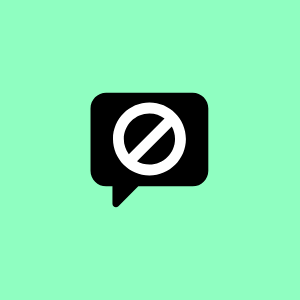ENOUGH.
Content warning: abuse
No-one should live in fear of abuse.
Abuse can be emotional, physical, sexual or financial. It can be words or actions. At home or in the street. It can be inflicted by a partner, ex-partner, family member, colleague, friend or stranger. It can be in person, through technology and online.
Whatever form it takes, abuse is never justified. Any behaviour that demeans, frightens or distresses is abuse.
It has to stop.
Knowing what abuse is helps us all recognise it when it happens. We can all do something to keep others in our community safe. This is why we're supporting the Enough Campaign, and saying 'Enough' to gender-based violence.
Alongside other universities in the UK, we have been working with the Home Office to develop resources that will help you feel able to provide support should you witness abuse.
The materials show how, in four potential uni scenarios, you can use the tried and tested STOP method:
- Say something
- Tell someone
- Offer support
- Provide a distraction

Say something
You could say something to the abuser, such as 'I don't think that's funny'. Or you could be more direct and tell them to stop.

Tell someone
You could tell someone in charge, such as the bar staff if you’re in a pub, campus security if you're at Uni, or the bus driver if you’re on public transport.

Offer support
You could give the support both to the victim and to others who are already intervening.

Provide a distraction
You could create a distraction to interrupt what's happening and give the person being targeted a chance to move away.
Examples of potential scenarios
You may see the scenarios below displayed around campus, on social media and in newsletters. Should you witness abuse of any kind within our community, please put this advice to use and join us in saying, 'Enough'. Whilst this campaign is about Violence Against Women and Girls (VAWG), the STOP method of intervention is relevant to any instance of abuse or damaging behaviour, including homophobia, transphobia, islamophobia, antisemitism or racism.
You can get more advice on intervening safely on the Enough campaign website and see the bystander intervention training information below.
Related resources
If you want to learn more about why intervention is important, or add more skills to your toolkit, sign up for our bystander training, which provides more depth and breadth to this topic. It will cover how to intervene or challenge the types of abusive behaviour, as outlined above. Find out more about this training online or search Handshake for ‘Bystander’ to book onto a course.
If you think someone is in immediate danger or a crime has been committed, please call 999.
Visit the ENOUGH Get Support webpage to understand how talking to someone can be helpful, and to find the different sources of support available to you.
You can confidentially report instances of abuse, bullying, harassment or discrimination to
Exeter Speaks Out and receive support.
If you need it, we strongly encourage you to reach out for support from our wellbeing services teams in Cornwall and Devon, the Students’ Guild Advice Service or Students’ Union Advice Service. Or you may prefer to contact external sources of support and advice.
To improve your understanding of what constitutes consent, you can take the course on ELE 2.
Check out our safety pages for more tips and advice on staying safe.
